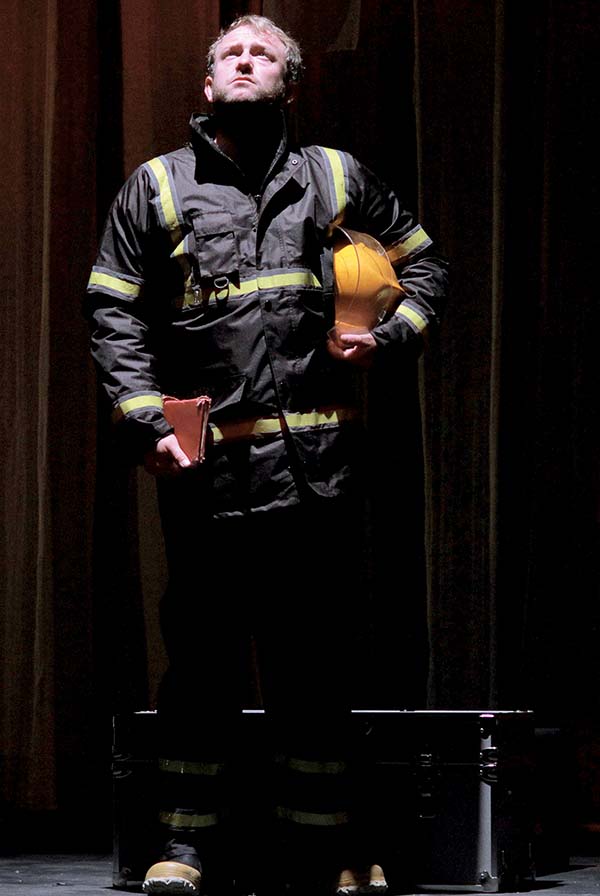'Fahrenheit 451' is Patten Series presentation of future (or is it?) - Oct. 8
Thursday, October 3, 2013
IF YOU GO
* What: "Fahrenheit 451."* When: 7:30 p.m. Tuesday, Oct. 8.* Where: Roland Hayes Concert Hall, UTC Fine Arts Center, 752 Vine St.* Admission: $15-$24.* Phone: 423-425-4269.* Website: www.tickettracks.com.
"Fahrenheit 451," Ray Bradbury's classic science-fiction novel, is set in the 24th century. But with its issues of censorship, the effects of technology on society and literature, and the means by which knowledge is gained, could it be closer to an actual tale of the early 21st century?
The Aquila Theatre of New York City will present its stage adaptation of the 1953 book at the Roland Hayes Concert Hall at the University of Tennessee at Chattanooga Fine Arts Center on Tuesday, Oct. 8. The production is part of the 2013-14 Patten Performances series.
The nonprofit theater's mission, according to its website, is to bring the greatest theatrical works to the greatest number of people. So it annually does shows in New York City, at international festivals and in some 70 cities on tour.
Aquila's productions are "the classics made relevant with superb acting and clever staging," according to The New Yorker, while The New York Times described the troupe as "an extraordinarily inventive and disciplined outfit."
"Fahrenheit 451" tells of a bleak future in which knowledge and literature are near distinction. Its protagonist, Guy Montag, is a fireman whose job it is to start fires to destroy books and the houses that contain them.
As the novel unfolds, his eccentric, young neighbor, Clarisse, forces him to confront the emptiness of his life. In time, he begins to question his job and the oppressive society in which he lives.
Although the novel is 60 years old, it remains popular and is a required reading text in many schools today.
Bradbury originally adapted it for the stage, and a 1966 version of it for the screen was directed by Francois Truffaut.

